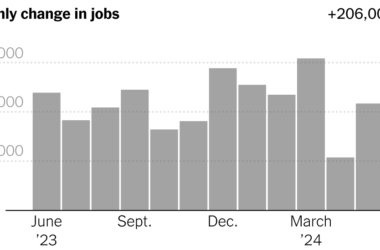A recent analysis suggests that President Biden’s extensive climate and equity directives have contributed to a surge in federal regulations, resulting in an annual cost of over $1.9 trillion for the U.S. economy.
The report, titled “Ten Thousand Commandments,” authored by Clyde Wayne Crews, highlights a notable increase in government red tape, attributed to a wide range of regulations, including those related to oil and gas drilling safety and standards for canned baked beans grades.
The report emphasizes that the expansion of the spending and regulatory state under Biden’s economic and social initiatives has elevated the cost of conducting business and creating private-sector jobs.
According to the analysis, the annual regulatory burden of $1.939 trillion accounts for nearly 7.4% of the U.S. gross domestic product and adds to the federal spending, resulting in Washington’s share of the U.S. economy totaling 31.4%.
The report further emphasizes the significant impact of the regulatory state, likening it to the world’s ninth-largest economy, even surpassing countries like Canada and South Korea.
While the Biden administration reduced the number of final rules imposed in 2022 compared to the previous year, the report underscores that the rapid implementation of crisis legislation has contributed to the expansion of red tape.
The analysis points out that the administration’s response to climate change has prompted various federal agencies to introduce new rules, such as those pertaining to particulate matter, power plant mercury, and methane leaks.
Additionally, the report highlights the White House’s commitment to addressing the climate crisis and notes the administration’s executive branch rulemaking, which increases the regulatory burden without congressional input.
To address these concerns, the CEI report offers several suggested reforms, including requiring congressional approval of significant agency rules, implementing legislation for the expiration of rules, and establishing an “Office of No” to challenge both proposed and existing regulations.








